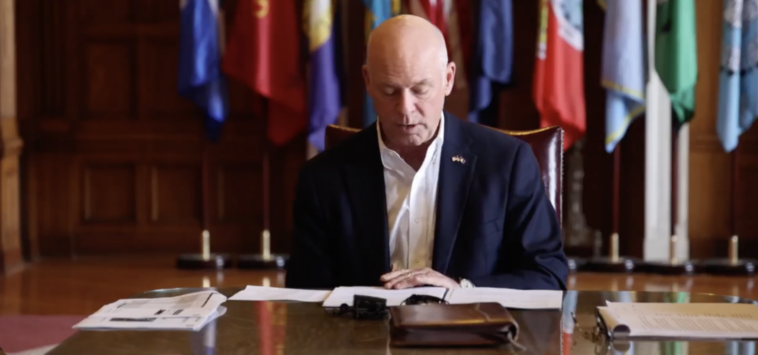
Montana Supreme Court’s Stance on Executive Privilege – A Deeper Look
Gianforte’s Bill-Tracking Documents – The Enigma
The Montana Supreme Court recently announced that Gov. Greg Gianforte may have valid legal grounds to keep certain documents confidential, throwing light on the state’s stance on executive privilege. These restricted documents could reveal crucial insights about Gianforte’s perspective on various legislative initiatives. Nevertheless, the court has ruled that the governor does not have the right to withhold these documents without first seeking a district court judge’s review.
The Implication on Executive Privilege
A close 4-to-3 decision on this issue comes to light mere days before the start of the 2025 Montana Legislature. The dispute is hinged upon Agency Bill Monitoring forms that Governor Gianforte used to gather feedback and monitor proposals during his inaugural stint as governor back in 2021. When the plaintiff Jayson O’Neill first requested to review these forms, he was denied access, due to claims of executive privilege. The court, however, has held that such a privilege exists only in rare instances, and must be assessed on a document-by-document basis.
Executive Privilege or Fundamental Right to Information?
Gianforte’s attorneys have defended the confidentiality claim, arguing that it is an entitlement under federal executive privilege. They warn that making these documents public might harm the open dialogue the governor needs to maintain with state staffers. The majority opinion penned by Justice James Jeremiah Shea, negates the credibility of this claim. It emphasizes that only a few very narrow privileges like the attorney-client privilege might apply in this case, rejecting the notion that leaders have blanket right to withhold public documents based on federal law exceptions.
The Crucial Role of “In Camera” Review
With this ruling, the controversial bill-monitoring forms will undergo a private review by Lewis and Clark District Court Judge Kathy Seeley in her chambers. This is legally termed an “in camera review”. Judge Seeley’s role will be determining whether the documents should be made public, kept under wraps due to an exception, or partially disclosed, thereby offering a pivotal interpretation of executive privilege.
Challenging the Ethical Boundaries of Executive Privilege
The state Supreme Court reaffirms that public’s right to know is only restricted by certain privileges like the attorney-client relationship, or when individual’s privacy clearly outweighs the public’s right to know. Here we see the court acknowledging the delicate balance between transparent governance and privileged disclosure, central to the understanding of executive privilege.
Public Records Rights & the Montana Constitution
Both the majority and minority decisions heavily reference Montana’s expansive public records rights embedded in the state constitution. This documents speaks to a broader and distinctive understanding of public disclosure rights compared to the federal Constitution. The court’s conclusion that the governor’s claim of privilege must be evaluated by the district court illustrates the state’s robust commitment to transparent governance.
Public Deliberation & The Right-To-Know Provisions in Minority Opinion
The minority opinion penned by Justice Laurie McKinnon strongly emphasizes the public’s constitutional right to information pertaining to government officials’ deliberation processes. It argues against the protection of executive privilege when it hinders public access to such information. By underlining that the right-to-know provisions have been enacted to protect citizens from governmental abuse, it champions a more transparent government.
Final Thoughts on Executive Privilege
In conclusion, this court ruling surrounding executive privilege highlights a shifting landscape of transparency in government operations. As a measure of the principle of open governance, it raises poignant questions about our understanding of an elected official’s duties to communicate with both their staff and the general public. Ultimately, it is a balance between preserving open dialogue and the fundamental right of the public to be informed.
Originally Post From https://dailymontanan.com/2025/01/02/montana-supreme-court-orders-judge-to-review-gianfortes-bill-tracking-documents/
Read more about this topic at
Court orders judge to review Gianforte’s bill-tracking …
Montana Supreme Court orders judge to review Gianforte’s …

